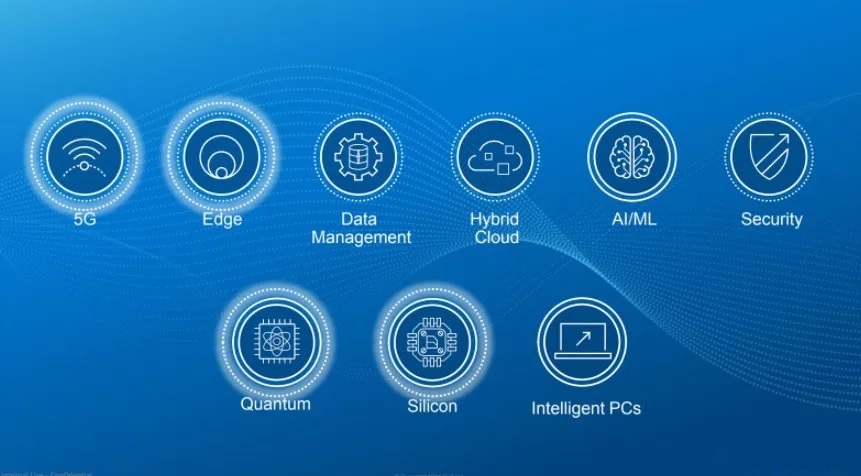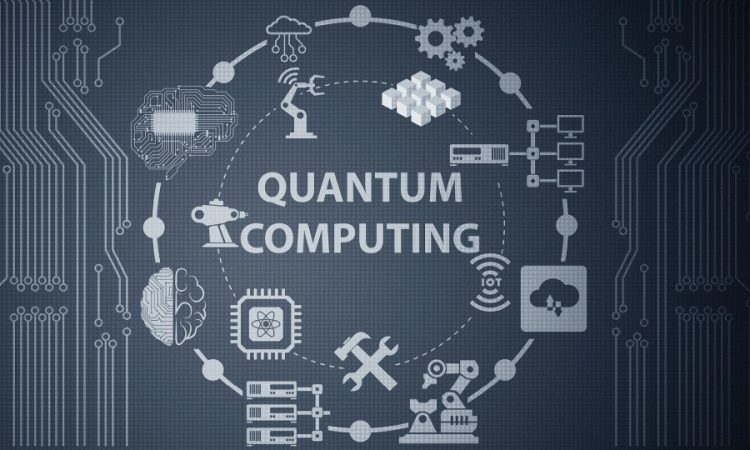In this blog “Quantum Computing Emerging Technologies“. Emerging technologies have the potential to change the world as we know it. One of the most promising and exciting emerging technologies is quantum computing.

In this blog, we will explore what quantum computing is? How it works, and what it could mean for the future.
Table of Contents
What is Quantum Computing?
Quantum computing is a new type of computing that relies on quantum mechanics. The branch of physics that studies the behavior of matter and energy at a very small scale. Unlike classical computing, which uses bits to store and process information, quantum computing uses quantum bits, or qubits.
Qubits can exist in multiple states at the same time, which allows quantum computers to process information much more quickly and efficiently than classical computers. In fact, quantum computers have the potential to solve certain problems that are currently impossible for classical computers to solve.
How Does Quantum Computing Work?
- Quantum computing relies on a few key concepts from quantum mechanics, including superposition, entanglement, and interference.
- Superposition is the idea that a qubit can exist in multiple states at the same time. For example, a qubit could exist in both the “0” state and the “1” state at the same time.
- Entanglement is the idea that two qubits can become linked in such a way that their states become dependent on each other. This allows quantum computers to process information much more quickly and efficiently than classical computers. Interference is the idea that the probability of a qubit being in a certain state can be influenced by the state of another qubit. This allows quantum computers to perform complex calculations much more quickly and efficiently than classical computers.
What Could Quantum Computing Mean for the Future?
Quantum computing has the potential to revolutionize a wide range of industries, from finance and healthcare to transportation and energy. Here are just a few examples of what quantum computing could mean for the future:
- Faster Drug Discovery: Quantum computing could help researchers to identify new drugs more quickly and accurately. By simulating the behavior of molecules at the quantum level, quantum computers could help to identify new drug candidates that would be difficult or impossible to discover using classical methods.
- Improved Cybersecurity: Quantum computing could help to improve cybersecurity by enabling the development of more secure encryption methods. We need to develop new encryption methods that are resistant to quantum attacks because quantum computers could potentially break existing encryption methods.
- More Efficient Energy Production: Quantum computing could help to improve energy production by enabling the development of more efficient solar cells and batteries. By simulating the behavior of materials at the quantum level, quantum computers could help to identify new materials that are more efficient and durable.
- More Accurate Climate Modeling: Quantum computing could help to improve climate modeling by enabling researchers to simulate the behavior of the atmosphere and oceans more accurately. This could help to improve our understanding of climate change and inform policy decisions.
Challenges Facing Quantum Computing
While quantum computing holds tremendous promise. There are still many challenges that need to be overcome before it can become a reality. Some of the key challenges include:
- Developing More Powerful Quantum Computers: While quantum computers have already achieved some impressive results, they are still relatively small and limited in their capabilities. Developing more powerful quantum computers will require overcoming significant technical challenges, including controlling and measuring qubits more accurately.
- Developing New Algorithms: Quantum computing requires new algorithms that are optimized for the unique capabilities of quantum computers. Developing these algorithms will require significant research and development.
- Addressing Scalability: Quantum computing will only be useful if it can be scaled up to handle larger and more complex problems. Developing scalable quantum computing systems will require significant advances in both hardware and software.
Quantum Computing Conclusion
In conclusion, quantum computing is one of the most promising and exciting emerging technologies. It has the potential to revolutionize the world’s future.

